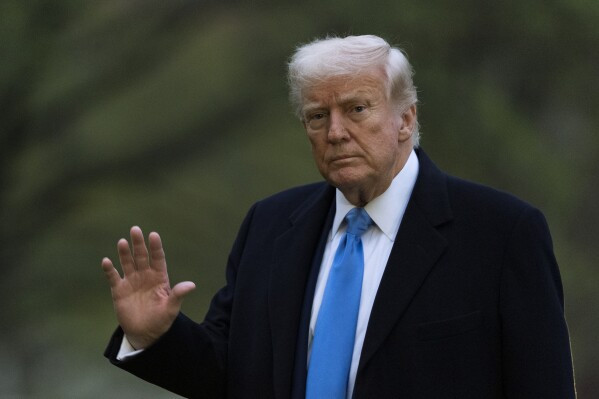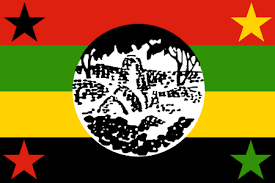
FOR decades, America cast itself as the world’s moral compass — championing democracy, condemning autocracy and lecturing countries like Zimbabwe on Press freedom, human rights and good governance.
Sanctions were imposed. Diplomatic scoldings were issued. The message was clear: America stood for democratic ideals.
But now, the mirror turns.
Under Donald Trump’s second term, America itself teeters on the edge of democratic erosion — and the irony is bitter.
As a Zimbabwean publisher and lifelong advocate for democracy and Press freedom, I watch with growing alarm as American institutions buckle under the weight of a single man’s power.
The pattern is familiar. We in Africa know it too well.
Steven Levitsky and Daniel Ziblatt, in their essential book How Democracies Die, wrote: “Democracy no longer ends with a bang — in a revolution or military coup — but with a whimper: the slow, steady weakening of critical institutions.”
In just the early weeks of Trump’s return, the signs are unmistakable.
- Mavhunga puts DeMbare into Chibuku quarterfinals
- Bulls to charge into Zimbabwe gold stocks
- Ndiraya concerned as goals dry up
- Letters: How solar power is transforming African farms
Keep Reading
Prestigious institutions — Columbia University and the Kennedy Centre — have caved to political pressure.
Corporations purge references to climate change, DEI and ESG like sinners before an inquisition.
This capitulation is not new to us. In Zimbabwe, we have watched institutions fold quickly when strongmen rise.
Business leaders toe the line. Judges are pressured. Journalists are vilified.
And always, always, the veneer of democracy is used to conceal the machinery of autocracy.
Trump’s chilling assertion that “We are the federal law” echoes President Emmerson Mnangagwa’s boast that “we own the police, the courts and the army”.
His attack on judges mirror the tactics African leaders use to intimidate and control the Judiciary.
His exclusion of certain media outlets from the White House Press Corps brings to mind the narrowing of Press space that has long stifled African journalists.
Even the talk of a third term — yes, he’s floating it — follows a familiar playbook.
Mnangagwa is currently trying to tack two extra years onto his term.
That slippery slope begins with undermined institutions and ends with altered constitutions. We have seen it.
What makes America’s situation so unsettling is the speed at which its democratic defences are crumbling.
The fear among professionals, judges, journalists and executives is palpable.
The norms many assumed would hold are proving far more fragile than advertised.
And here is the hard truth: Democracy doesn’t defend itself.
It requires citizens willing to stand up when it is uncomfortable. When it is risky. When it is costly.
Timothy Snyder’s On Tyranny, another must-read, reminds us: “Do not obey in advance.”
But too many in America already are.
As I write, my colleague Blessed Mhlanga languishes in a Zimbabwean prison, charged not for a crime, but for asking questions.
His courage compels me to ask: Do Americans truly understand the fight they are now in?
Not since the Civil War has the United States faced such a grave internal threat.
For generations, Americans have lived with the illusion that their democracy is unassailable.
But as we in Africa know — painfully and intimately — democracy is a living thing and it dies not in one dramatic moment, but by slow suffocation.
American democracy is now learning what we’ve long known: Good laws are not enough.
Strong institutions are not enough. Political tradition is not enough.
Only the active, engaged and courageous efforts of citizens can hold the line.
This is where Africa may offer not just a cautionary tale — but a lesson in resilience.
We have had to build democratic muscles the hard way — through resistance, underground networks, fierce independent journalism and a refusal to surrender hope even when institutions failed us.
We know how to fight and survive tyranny — and how to expose it.
This is knowledge earned through sacrifice. Through jail cells and exile. Through beatings and burying our dead.
And it may now be more useful to American democracy advocates than ever before.
Trump’s successes in undermining norms should alarm every freedom-loving person.
Each boundary crossed without consequence becomes a stepping stone to the next abuse.
As in Zimbabwe, silence becomes complicity and complicity becomes collapse.Former American President Barack Obama put it plainly last week: Believing in democracy is no longer enough. People must act.
And yet — how can American diplomats still lecture the world on Press freedom while Trump calls reporters “enemies of the people”?
How can they demand judicial independence in Zimbabwe while their own president vilifies judges?
The moral authority once brandished by America now rings hollow.
The same America that threatened Uganda with sanctions over anti-LGBTQ+ laws now watches its own leader espouse similarly views.
This matters. Because when America falters, the ripple effects empower autocrats everywhere.
If the self-declared beacon of democracy gives up the fight, what hope remains for smaller, struggling nations?
The truth is stark: No nation, no matter how rich or powerful, is immune to democratic decay.
And so I say this as a friend of America, as someone who has fought for freedom and paid the price:
Wake up. Stand up. Fight back.
This is not just your moment — it’s the world’s. Because if America falls to authoritarianism, the impact will be global.
But if America rises to the occasion, if its citizens — ordinary and powerful alike — answer this call with courage and clarity, it can inspire a democratic renewal far beyond its borders.
The battle for America’s soul is a battle for human dignity everywhere.
And those of us who’ve walked through the fire are ready to share what we’ve learned.
Let this be the moment democracy proves it still has believers and fighters.
- Trevor Ncube is the chairman of Alpha Media Holdings and host of “In Conversation with Trevor.” Subscribe to this newsletter for fresh and fearless insights










